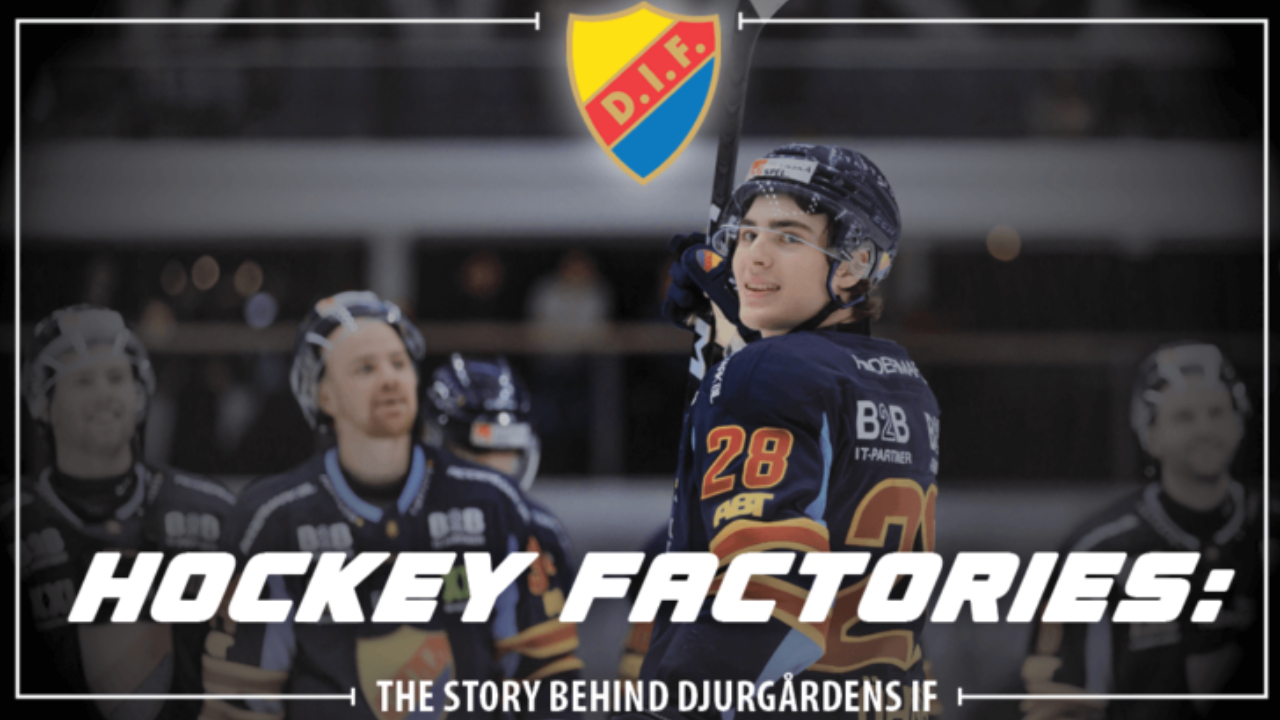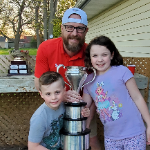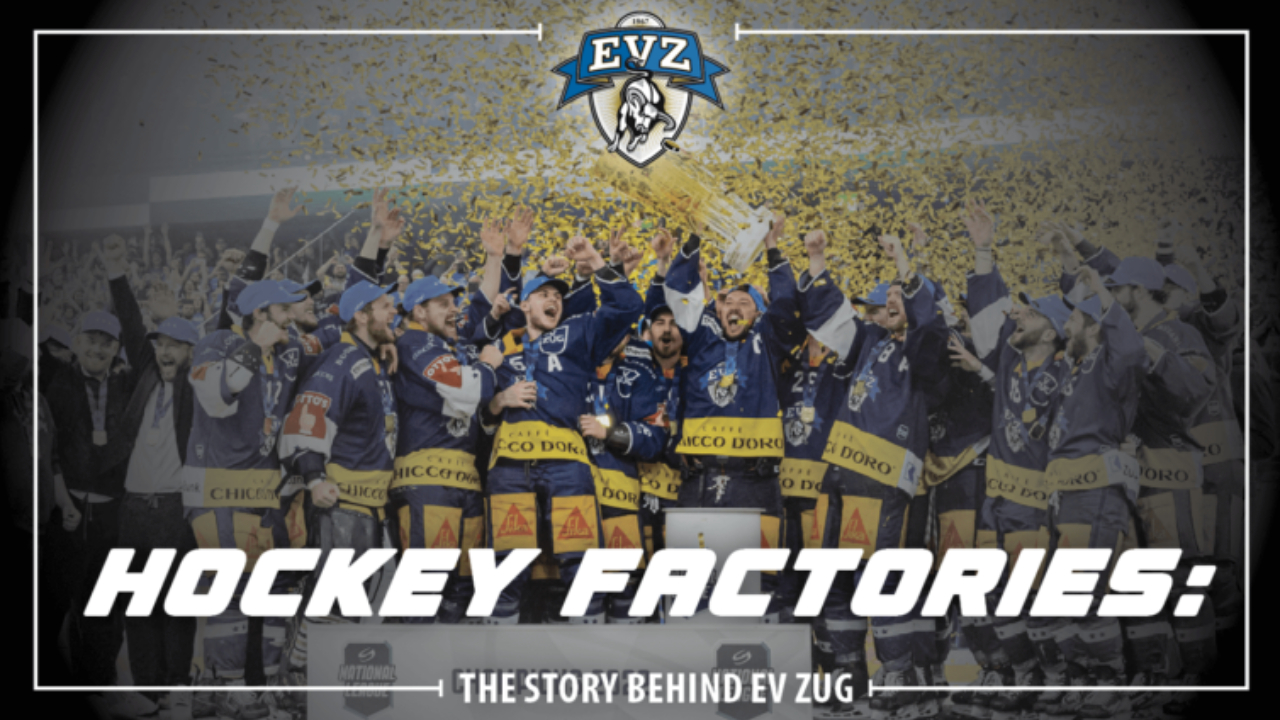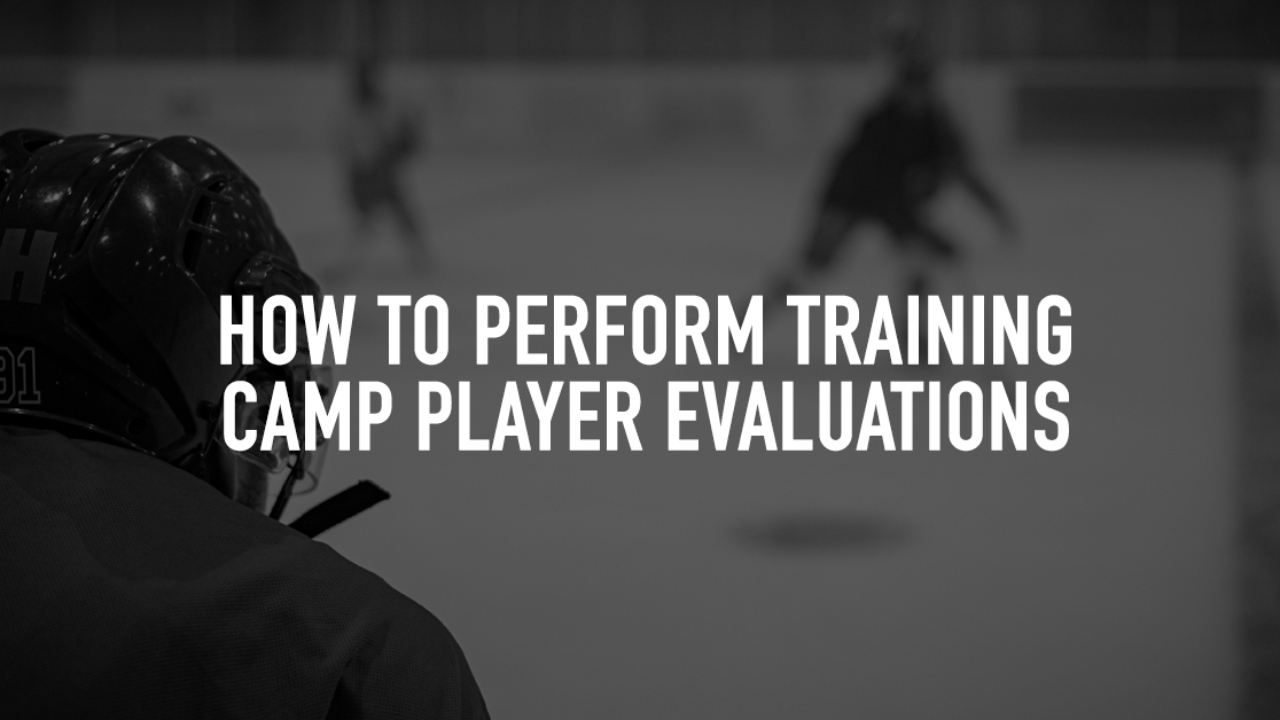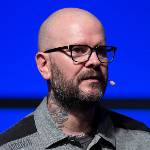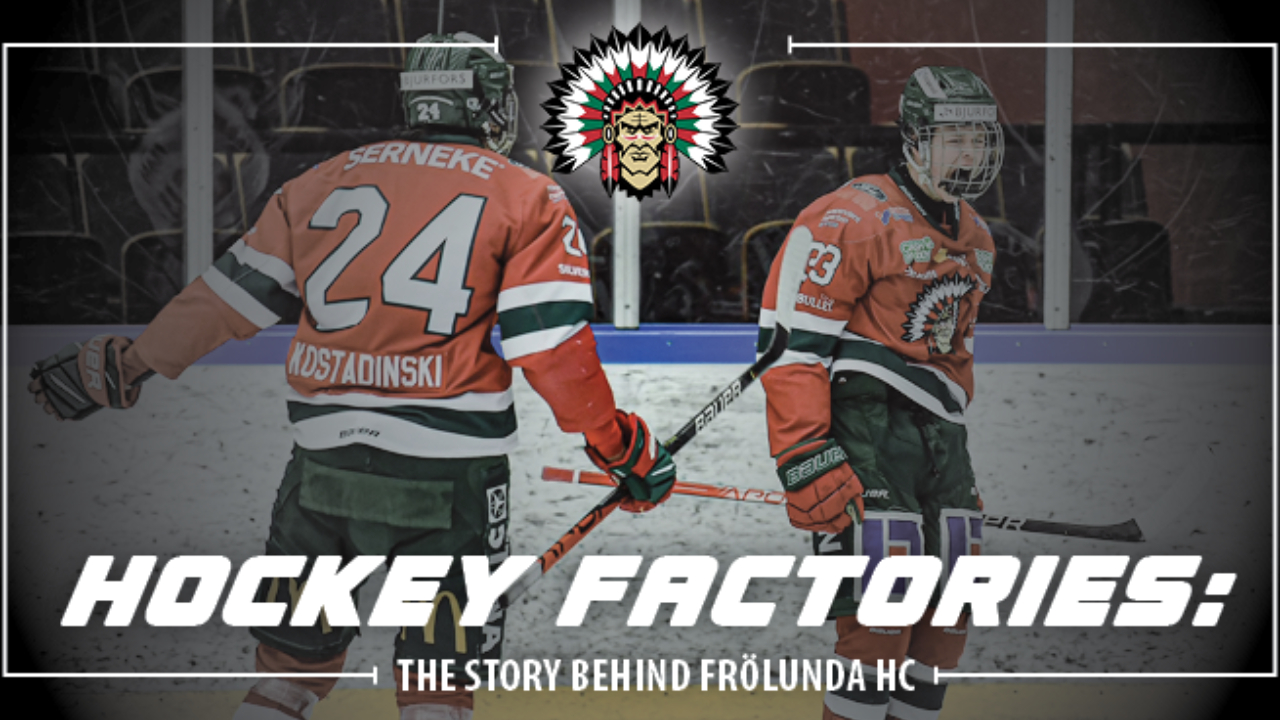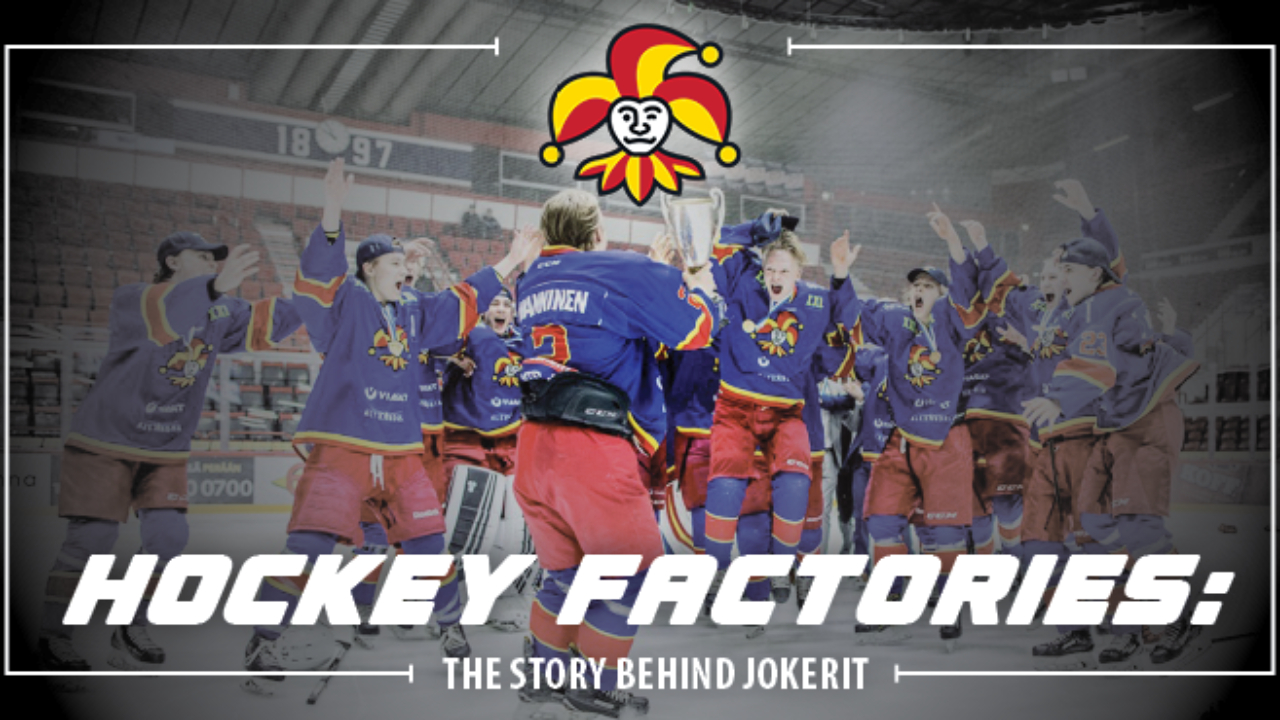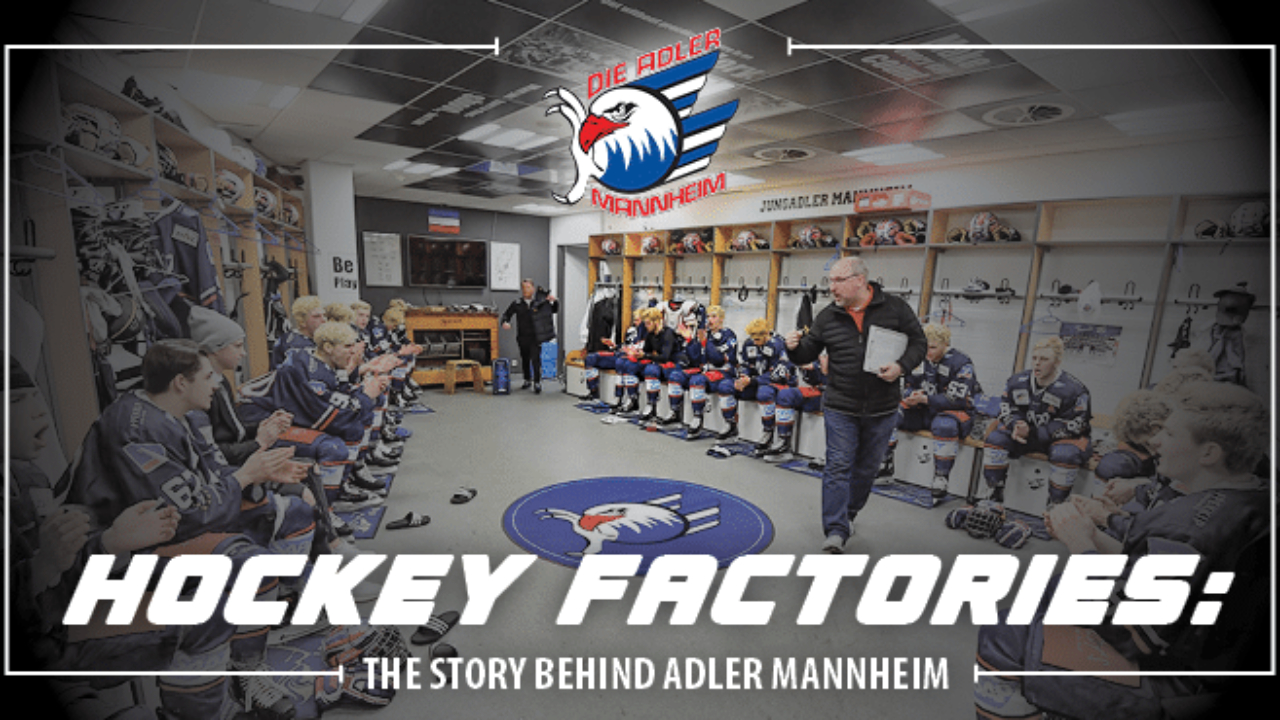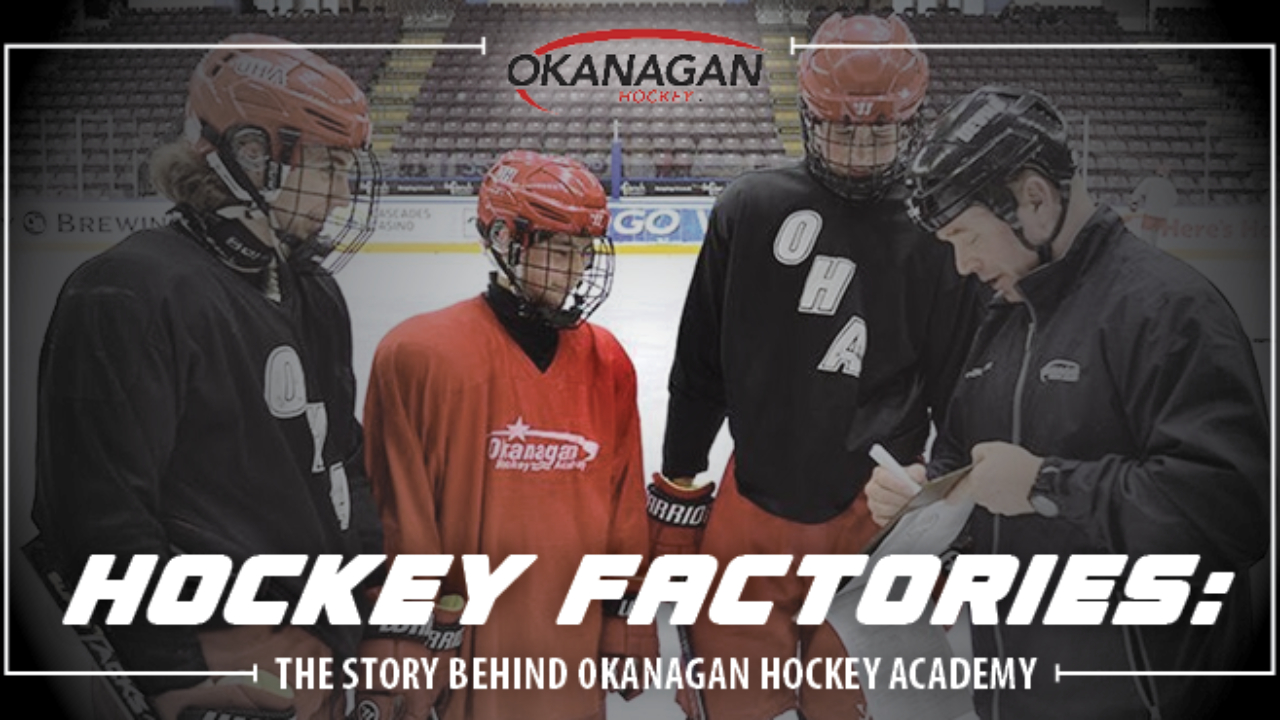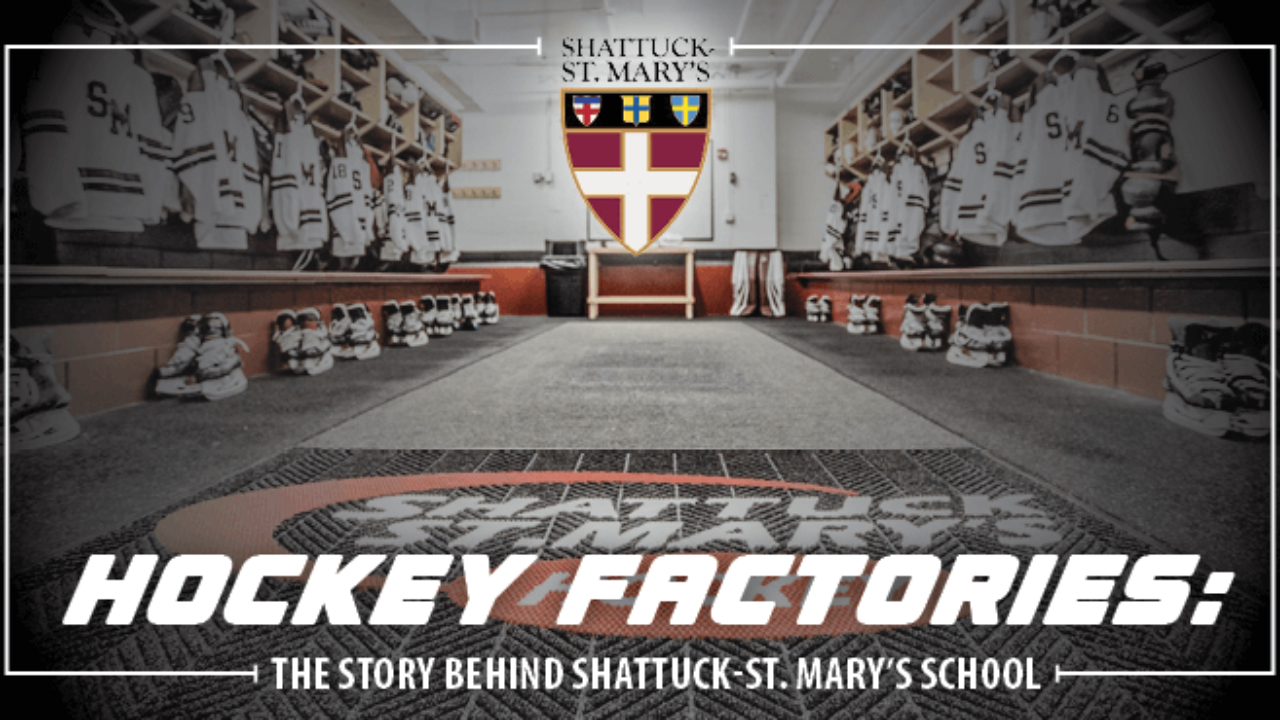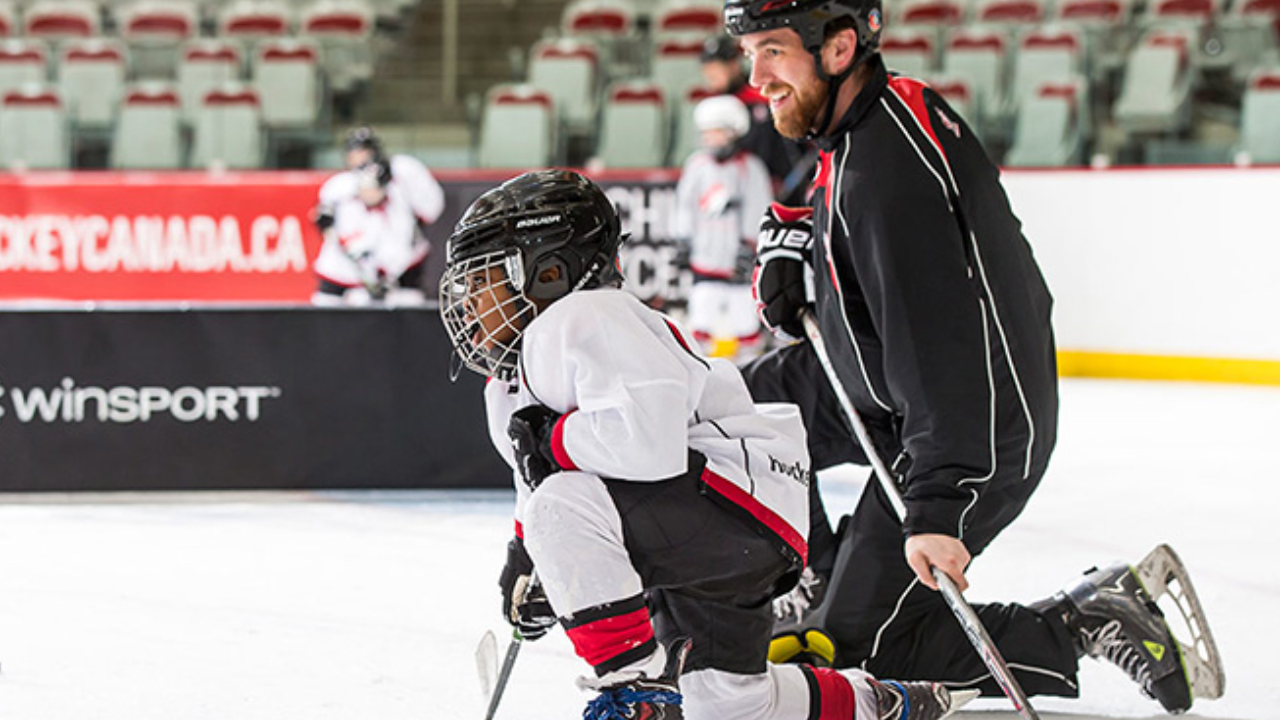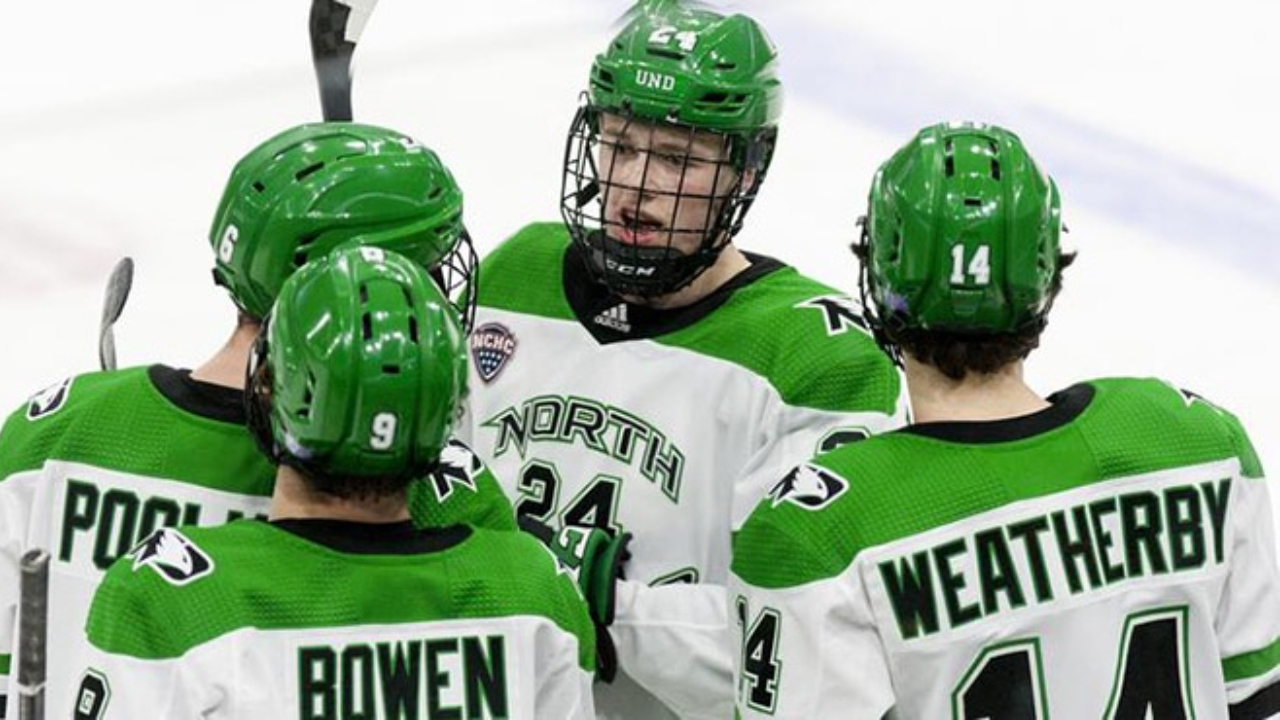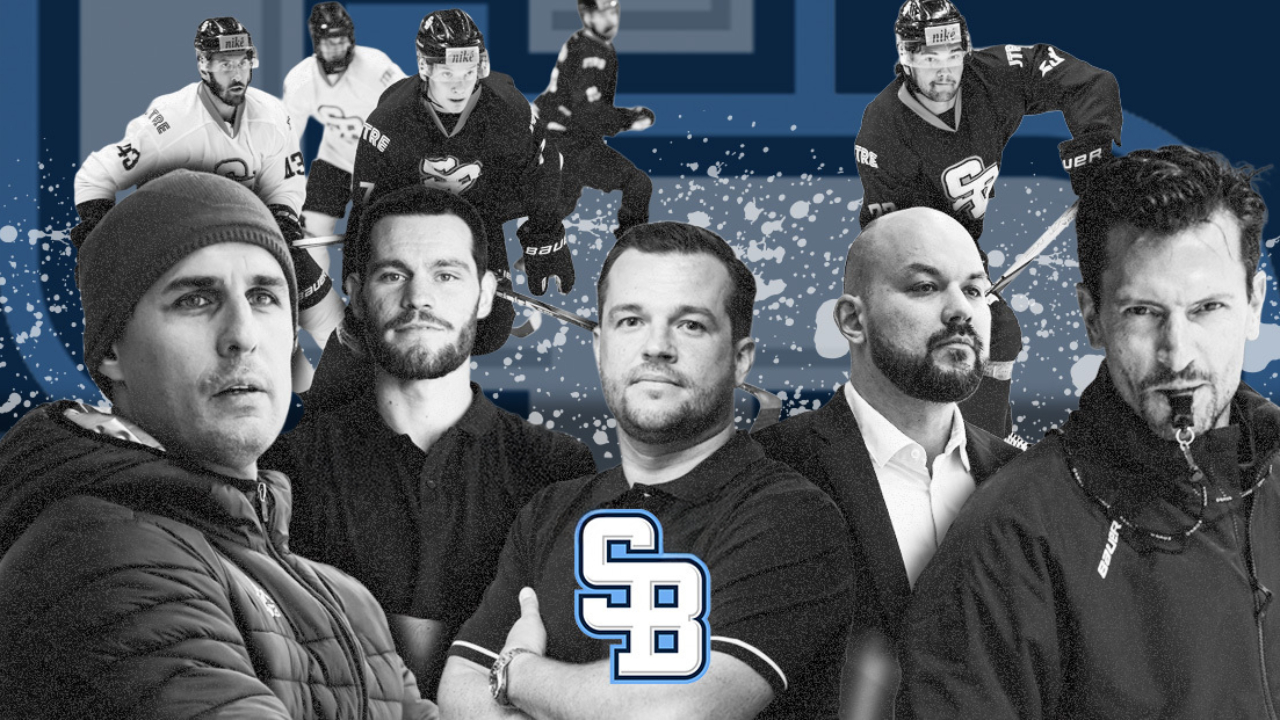
Connections happen everywhere in hockey.
It’s a global game, but one of the smallest of small worlds when you start playing your own version of Six Degrees of Kevin Bacon.
A changeover in ownership at HC Slovan Bratislava has brought in new minds, fresh faces and, like all shifts, a new philosophy.
Not easy to do with a club that has a history dating back to the early 1920s and especially with a club that won the Slovak Extraliga Championship as recently as 2022.
“HC Slovan has such a long history, there have been so many famous players that have come through,” explains Michael Harsanyi, Slovan’s U12 Head Coach and U14 Assistant Coach. “Our club just passed its 100th anniversary, so it has a ton of tradition. I feel like the players have some of the best conditions in Slovakia to get better as a player and as a person. This is it.”
Harsanyi would know, he played at HC Slovan from age 7 until he was 20-years-old.
His entire childhood career was with the club and now he’s behind the bench instead of sitting on it, helping develop the next era of players.
“When I started in the club, there were a lot of kids because it’s the biggest club in Bratislava, but I think there wasn’t so much focus on the younger kids,” Harsanyi admits. “The focus was at U16 and U18 and higher but now it’s getting better and better that way.”
Part of the emphasis the new ownership group has brought in centres around the core of what Hockey Factories is all about – development.
And not just on the ice.
“We’ve started to set up that vision for the club and we try to get all the coaches to have that same vision,” Harsanyi details. “We said we want to focus on a holistic approach with younger players – we don’t look at them as hockey players, we look at them as kids.”
Peter Kudelka (below) was called upon to be the CEO of the club in 2024, under the new regime. He played for HC Slovan and coached with the Slovakian women’s national teams.
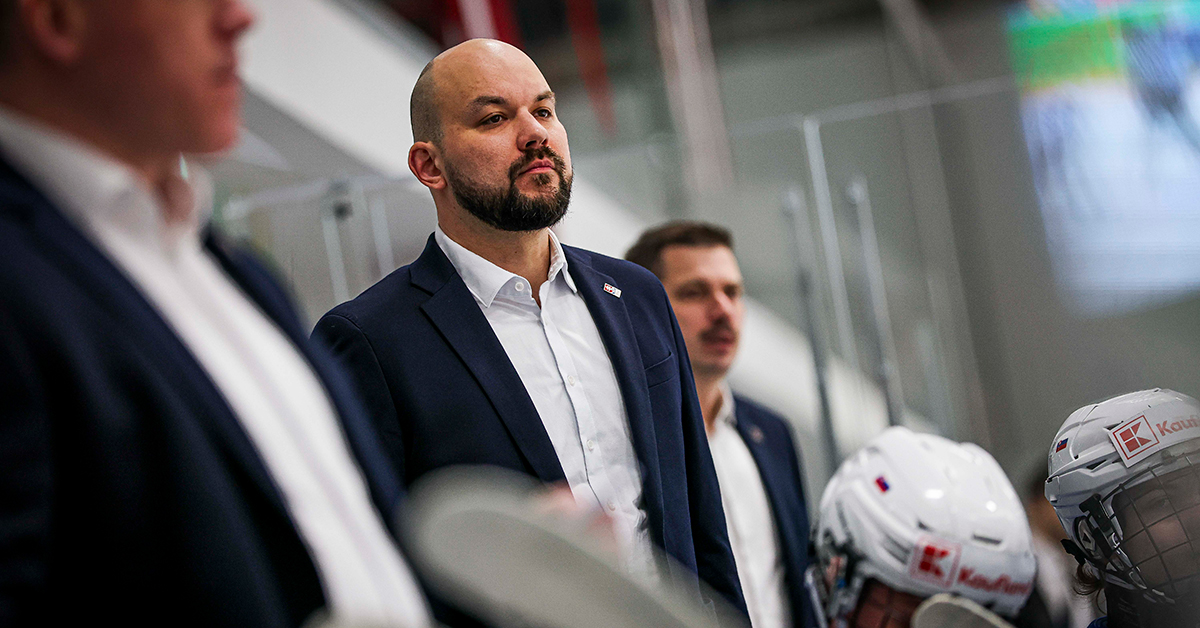
As Kudelka was looking to fill out his staff, he went through his rolodex and by connecting his past with his future, found the two other sides of his square of leadership to bring the club to new heights.
================================
Kudelka first connected with Lukas Havlicek when they were 14-years-old at a regional camp in Slovakia.
They had played for different teams and were rivals on the ice, Kudelka says, but had a great relationship.
Further down their paths, Havlicek was organizing tournaments for youth teams and Kudelka brought him on as a coach for the club he managed.
That’s where they got on the same page of how to develop young people.
When the opportunity came for Kudelka to step into his current role with Slovan Bratislava and hire a manager, Havlicek was at the top of his list.
“Our first meeting was more of Lukas not believing it was real, but the second meeting we met with the board, and it was a reality and one that we are very excited he wanted to take on,” Kudelka shares. “After two short meetings he accepted my offer and here we are.”
“With Peter and I knowing each other for more than 20 years we actually developed into similar people professionally,” Havlicek says. “We want to produce a high quality, professional club with honesty and responsibility and we want to do things 100%. We took things from our other experiences and the people we’ve met and want to put that into our club.”
Havlicek has a storied past in the game as well.
After wrapping up his playing career, he was organizing youth tournaments and got into the agency world, scouting for HC Ocelair Trinec before moving on to the NHL to be part of the Pittsburgh Penguins for two seasons.
“As a player, I always thought too much and sometimes that was a bad idea,” Havlicek (below) jokes. “I was doing some coaching when I finished playing, but I always saw myself managing people and being part of the decision-making process. I was working with a tournament company scouting, arranging schedules and flights and naturally that went to my next step of representing these players. With the Penguins, I thought I could show that I was able to identify good players at young ages and so combining all those things together, what else could you do but be a GM?”
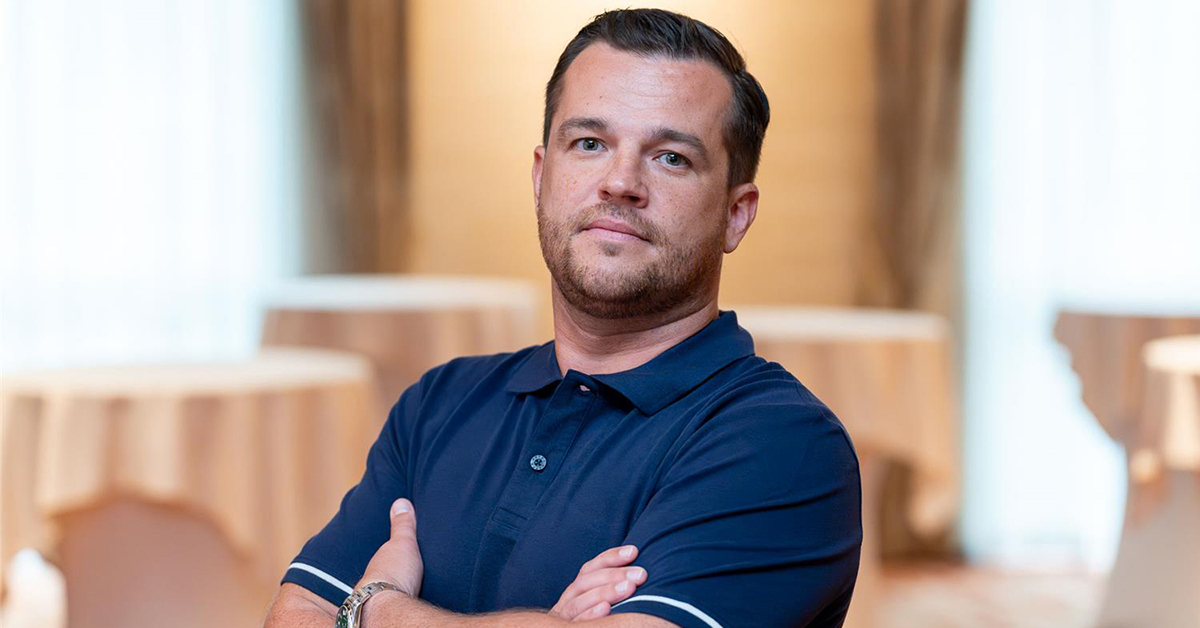
The two got to work.
“As with every job you have expectations and then you learn from actually doing it,” Havlicek outlines. “I was hoping we would find the club in a different shape, as a whole, but we had more work than we thought. The process started from there.”
One of Havlicek’s principal skills is communication. He talked glowingly about some of the opportunities he’s had to meet people, pick their brains and share and support each other.
It’s not the classic Slovakian way, he says.
The other principal Kudelka and Havlicek share is holistic development.
“I realized long term athlete development through a holistic approach was the best way,” Kudelka states. “We know that we are not just developing a player, we are developing a human being. We know 95% of the players in our program will never play professional hockey, but we know we can develop wonderful people for our community in Slovakia.”
Kudelka admits it’s not just about practice, practice, practice. His new philosophy has always been to develop leadership and life skills beyond hockey.
“When they come through our program, we hope to get them tools so they can be successful in business, studies and family life and they will be the best people in our society.”
There may be no one more connected to those impressionable years than Harsanyi.
“At this age group, we focus on the social side and the mental side,” he adds. “Hockey, obviously, is a big part of it, but now it’s just as important to work with the kids on them as people off the ice. We want to teach them a balanced system – offense and defence – so they can all work together and show them that hockey is a team sport so everyone has a role to play.”
There is a school grade system that is used in Slovakia – the U12s and U14s are explained more as Grade 6 and Grade 8s, comparable by their age.
Seeing a mix of those two age groups, Harsanyi has to take different approaches with each and manage that within the coaches throughout the club.
“With the younger kids we want to make sure they feel like we are one of them, not like I’m the coach and you are the player,” Harsanyi includes. “We want them to be honest with us and have fun with us and then the older kids we do talk more in depth with them about school and life and anything they have going on outside of hockey.”
His mission is for his players to get to U18 and U20 and be successful, but admits at his level they are looking for good habits and execution.
“We want our players to want to win and be competitive, but in the younger groups it’s nowhere near the most important thing.”
During that handoff, players will fall under the leadership of Michal Macho, HC Slovan’s U20 coach and previously Slovakia’s U16 national team head coach.
His main role, as he says, involves the preparation of and development of young players.
“My task is to guide the training process that makes the transition to pro hockey as smooth and successful as possible,” Macho continues. “We are the last age group that is transferring players to the men’s leagues, so we have a great responsibility to have them ready for that moment.”
Macho’s hockey career got cut short with a knee injury, so he joined a friend who was coaching Grade 6 at the time and has been coaching ever since.
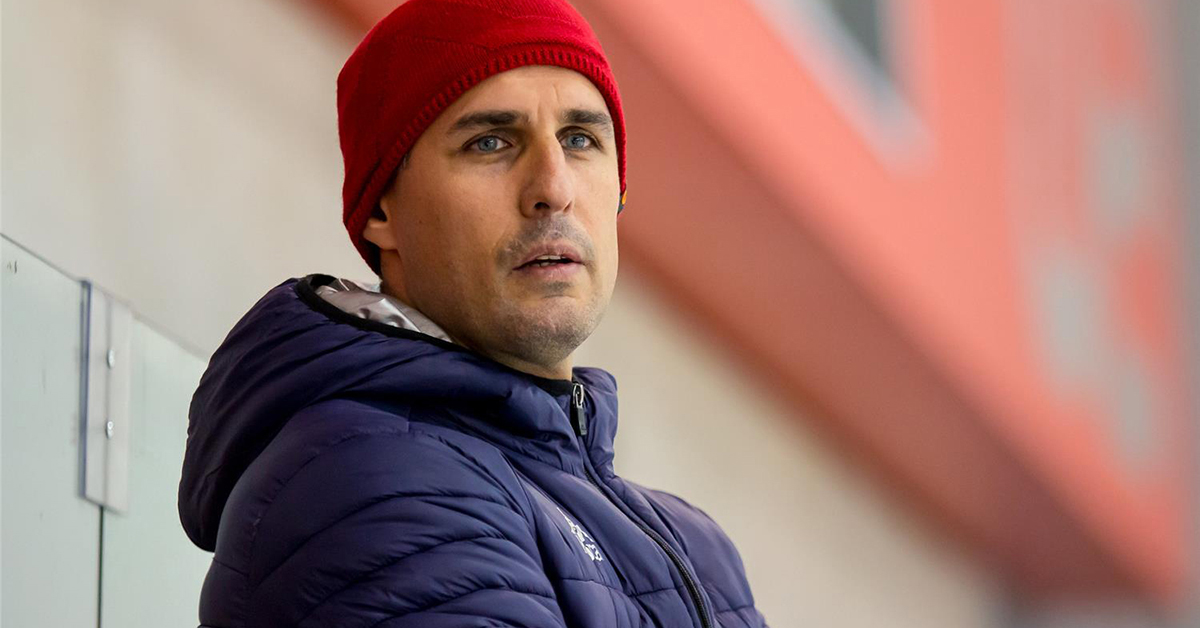
“It’s been more than 10 years now and in my coaching career, I’ve got through almost all levels,” Macho (above) says. “Every two years it seems I’ve been moving up and now I’m coaching U20. Every age group will give you something to learn as a coach about the game and the players in that time of their lives. I’d love to try to coach a men’s team one year but right now, I’m thrilled where I am.”
Because of his age group and connection with the men’s team, Macho is regularly sharing information with those coaches, which has made it easy for the club and the coaches to align.
To make the holistic development work within the club, as Havlicek explains, it’s not just about player development, the coaches have to develop and communicate as one.
“Our coach evaluation is about learning from mistakes, what was the reaction at certain times and what could we do better,” Havlicek states. “We sit and talk as a group every week about our process and our communication and if we figure that we’ve made changes, we have done the best we can do, then we’ve done a good job.”
“Now that it’s happening, it’s been great to see our coaches get connected,” Harsanyi echoes. “It’s so important for all our coaches to go the same way so we can teach the same principles because that will only help the players as they go from category to category. When the coaches get new players next season, it makes it easier for them too to have the same principles from the year before.”
That communication is not just within the club’s coaches but also with their skills staff, including Peter Bohunicky, a former presenter at The Coaches Site Live.
After Havlicek was brought in, he called upon Bohunicky to help with the player development side of the club.
It was an easy yes.
“The vision is exactly the same, Lukas wants to develop and build something,” Bohunicky explains. “He has great experience from high level hockey, and this is what I’ve done for 20 years, I love to develop players. That’s why I said yes right away. I know Lukas, I know he’s a professional and the vision of his development. We are trying to build something.”
Bohunicky (below) sees his role to make the players better, to accomplish their dreams and to get them to the next level.
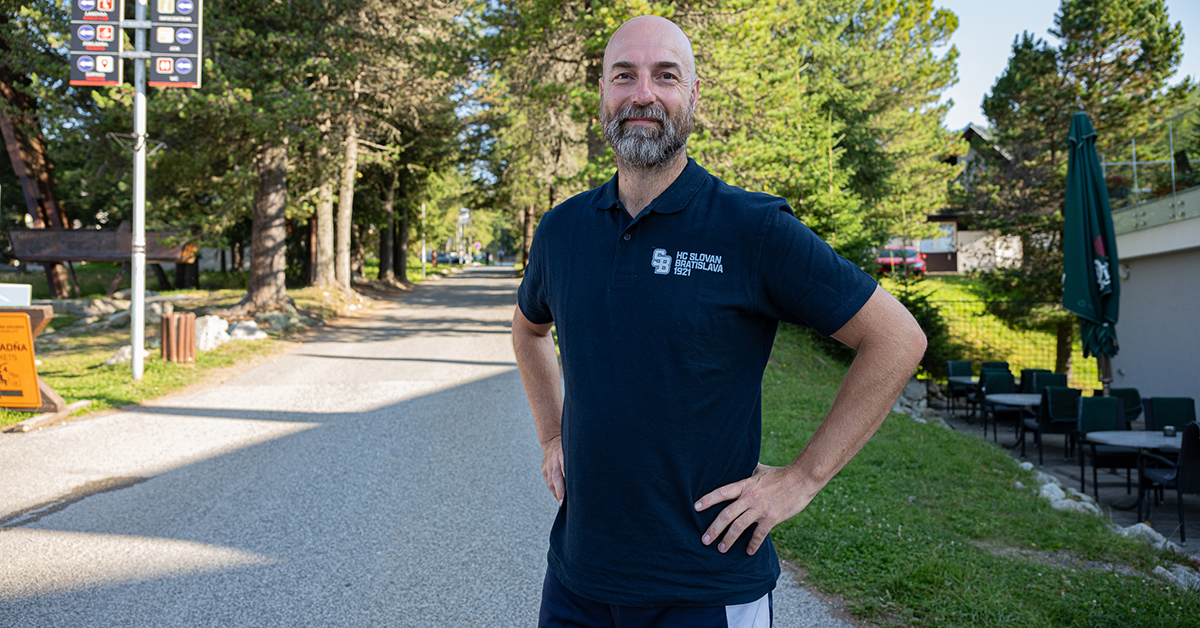
To grow them from one role to a better role, he says.
“My hands are free, Lukas knows me and trusts in me and what I do,” Bohunicky includes. “I always say the NHL is the best league in the world and it is my dream to get the players there. If something less is going to happen, that’s still great. I don’t have low dreams, I have the highest dreams possible for my players.”
Having experience working with players from all levels, including members of the Florida Panthers and Anaheim Ducks, Bohunicky sees a comparison of HC Slovan to organizations at the NHL level.
“Everything is so professional. It seems like every person is there for the right reasons and doing the right thing within the club. I have no problem saying this is the top-class club in Europe, for sure.”
“It’s important for me that I have people around me that believe in the process of developing all the players in our club,” Kudelka wraps up. “One of the biggest parts of my vision when I started with Slovan is around educating the coaches. I know that people who have experience, who have learned from others, who carry evidence-based knowledge are the types of coaches that have the best success.”
It wasn’t always that way for Kudelka.
In fact, it was the complete opposite.
He found his way at a sports school in Finland, one of the most prestigious in the world.
While he was there, he also found someone who would be at the forefront of his vision of coach education.
================================
On their website, The Finnish Sports Institute explains they offer vocational training and liberal education in the field of sports in Vierumaki.
They offer degrees in things like physical education, sports facilities and specific courses for coaching.
One hour outside of Helsinki, Vierumaki is the home of holistic development.
It’s where Kudelka attended his studies and got his greatest wakeup call.
“It’s funny, before 2020 I was a different coach,” he admits. “I was yelling, I was being dominant, I was trying to act like a dictator. After that, I met a former Jokerit coach and he was my mentor. He showed me a different approach to being a coach. I can say I learned the majority of this kind of athlete-centered coaching in Finland.”
This athlete centred coaching is now the North Star of HC Slovan, but at the time, Kudelka had a lot of learning to do.
“It was brutal,” he comments. “I traveled to Finland with high self confidence and I thought I knew everything and was going to get a little bit of information from a different country. After two months, I realized I knew nothing. So, I started reading a lot, talking with my teachers and more experienced coaches and I changed. In the end, it helped me to be successful in the high performance environment in Slovakia and the youth national level as well.”
One of his classmates, Ruben Rampazzo (below), had a fairly similar experience.
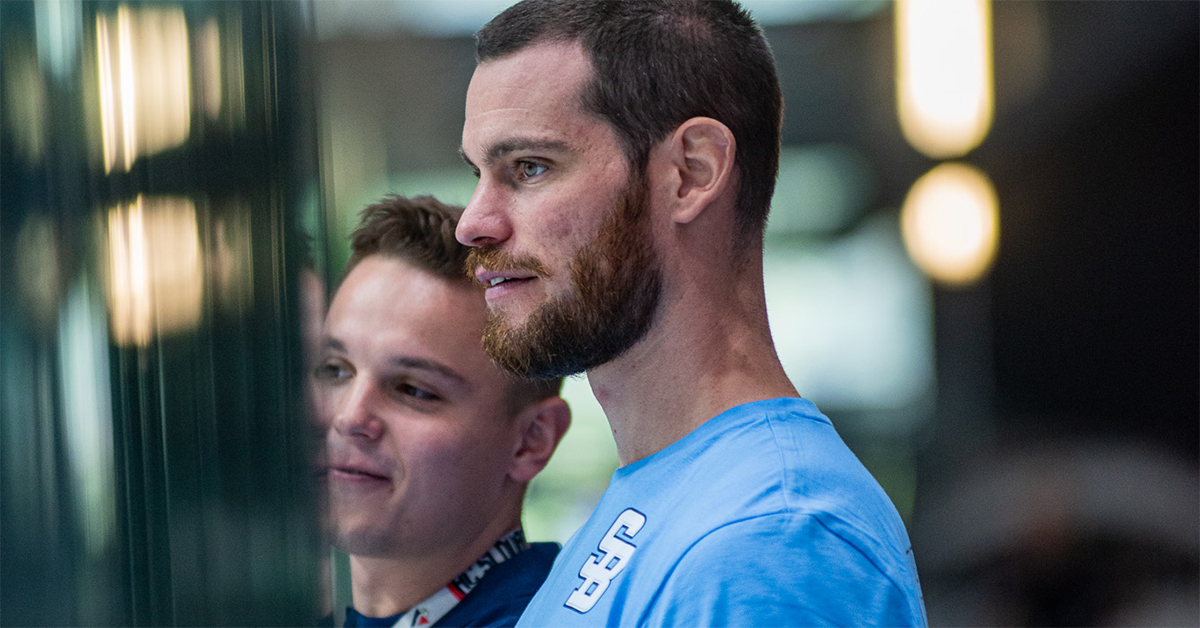
“Vierumaki had a big impact on me,” he admits. “It was a small life crisis to realize everything you’ve experienced is not really valid in this new role in sport, which has been frustrating, but the coaches and teachers give you confidence and content that helps reshape your philosophy for the better.”
“The first year especially, you are flushed with information until October and November until you finally realize ‘ok, I don’t know anything’.”
Rampazzo’s thesis, which he was kind enough to share with me, entitled “Culture & Coaching” focuses on how Swedish coaches coaching in Switzerland navigate the cultural landscape.
It is a fascinating read.
The idea of it started with his own upbringing.
He was born in the bilingual area of Balzano, Italy, his mother is from Switzerland, she spoke Swiss/German to him, and his father is Italian and he spoke Italian to him. His friends, as well, spoke German dialect so he was surrounded by different cultures, ideals and norms from Day 1.
As preparations for this coming year started, Kudelka knew to properly educate his coaches, he had to bring Rampazzo on board.
“He is a very important person for me and what he’s doing for coaches is amazing,” Kudelka compliments Rampazzo regularly during our call. “We are educating our coaches as much as we can. Every two weeks we have sessions that are mandatory for our coaches. We are pushing our coaches to be better. We can help create great human beings and then in the end we are able to prepare them to play at an elite level.”
Rampazzo says he jumped at the opportunity to join a club like HC Slovan with such a rich history, but also the chance to come in with a bit of a blank page.
“My goal is to refine the coaching process,” he claims. “So, how our coaches are working with players from 12-years-old and up, what are they doing with them and how we will target player development. We will do some theories with the coaches, some articles and then I’ll be present at practices, and they will have assignments after the presentations, it’s a short study program for the coaches.”
Having walked through the door in May knowing only Kudelka, Rampazzo expects to start very general, but once he has a better understanding of what coach needs what, he will get into more specific and individual work in year two.
“My personal goal is to increase the professional competence of the coaches and give them a taste that they feel like they know how to develop themselves,” Rampazzo sets out. “Being able to identify their strengths and weaknesses and obstacles they face to help them make their next step. When they have that, I know they will work very hard to find the truth with evidence-based thinking about the game, about nutrition, anything, finding out what is true.”
This year, Rampazzo clarifies, it will be to optimize the way coaches talk to their players, the words they use and how to bring their vision alive.
“If there’s the same use of language but also what we do, how we train, similar session structure, similar game play – all of that helps the player but it also helps the coach evaluate and adapt,” he continues. “Our coaches will need to experiment, educate themselves, reflect and then we will all get better.”
Through now 14 Hockey Factories articles, I’m not sure I’ve come across a club with the dedication in coach education like HC Slovan.
Rampazzo also speaks about being in Finland and hearing the same conversation with coaches that they want their players to compete more, but his mission is to include the coaches in finding out how they want to get there.
“What I see with coaches that didn’t get to go through a study program is they do things because that’s how things have always been done or how they feel most comfortable, but I think the reflection part with themselves has become more important,” Rampazzo explains.
“It’s not just about the tactics and technique anymore. You have to be able to connect with people, how you know yourself, how you get your message through and how you think about what you’re doing.”
================================
It's one thing being hired as a manager for an NHL team, where you have to concern yourself with one group, whereas as a manager of a club like Slovan, you have to reach every corner, from the introduction of the game to the first team.
Kudelka and Havlicek had the vision and had brought in some pieces around it; it was now about bringing it to life.
“When we first came in, we looked at the club and players and you are somewhat handcuffed because of contracts and money,” Havlicek explains. “But then you can look at the staff itself, find the people you believe in, bring in people you think will take you to the next level and we found unique people who fulfilled our philosophy.”
There were some changes made with the youth coaches right away. There was some hesitation with the pro team, but then a decision was made to move on from their head coach at the time.
To fill that role, they went looking for someone who had the same passion, same vision and the communication skills to make it all happen.
They found that in Brad Tapper. (below)
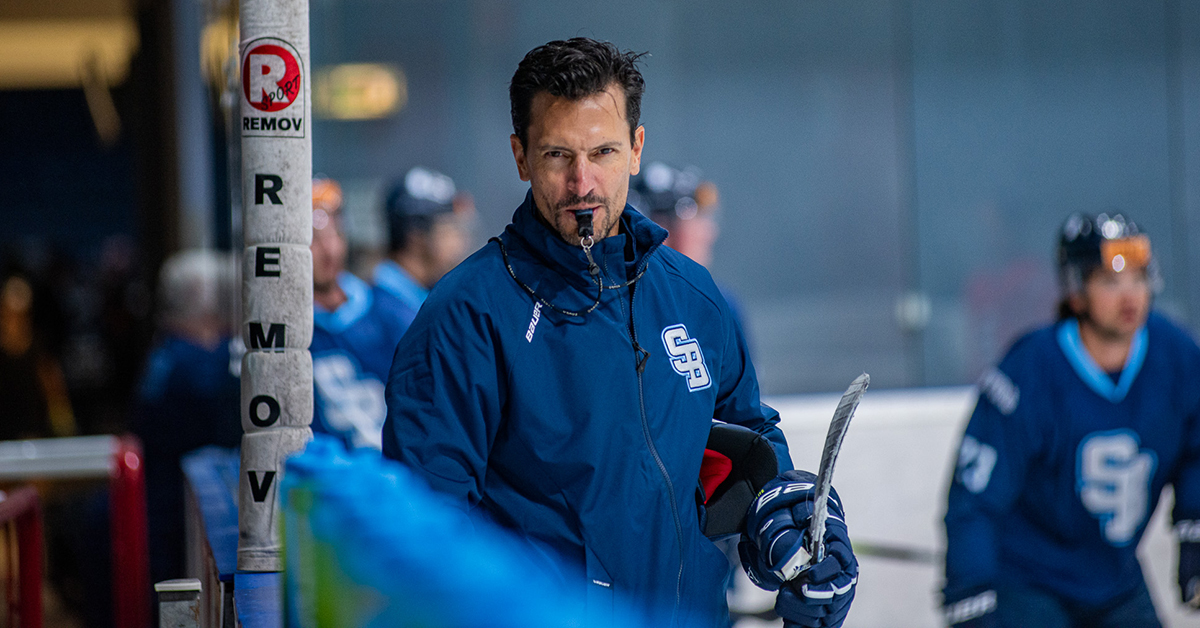
“When I started talking to Brad and his thinking of finding ways to be better every day, that was the start,” Havlicek recalls. “The passion and communication he has, I think, will bring him great success here.”
Kudelka, in no surprise, was in lockstep with Havlicek’s thinking.
“I had a video call with Brad during the international break in February and I was very impressed,” he remembers. “At the end of the call, I told him if I wasn’t the CEO, I’d want to be his assistant coach because we shared 95% of the same beliefs. It was crucial for me to find the right guy, who understands he is a piece of the whole organization.”
Tapper had been released from ERC Ingolstadt in Germany where he had coached for three years working with Mark French, who is someone he took a lot from.
He got his start coaching in the Ontario Junior Hockey League with the North York Rangers in 2009 before moving to posts with the Florida Everblades, Orlando Solar Bears and Adirondack Thunder in the ECHL, Chicago Wolves, Rochester Americans and Grand Rapids Griffins in the AHL and Okanagan Hockey Academy in Ontario before going to Germany to coach Iserlohn.
“From Day 1, Lukas has been amazing to work with,” Tapper boasts. “I’m a big people person and I love talking to people. The lure for me is that everyone has been amazing to work with. I don’t know how to say much in Slovakian, but people are willing to change their language for me, it’s been awesome.”
Tapper presents himself as a player’s coach with the incredible line of wanting to “make people go from a ‘B’ to an ‘A’. He fits the mould perfectly.
“I think players coming in will hear the passion in my voice,” Tapper hopes, which is evident. “I’m very sincere about this job and very sincere about this club. This club has a very strong connection with the community. Everyone is going to be valued in every role.”
He’s a player’s coach for certain, with expectations that are non-negotiable.
“I’m not big on trying to get players to compete. At this level, that’s their job, that’s how they put food on the table. They should be ready to go,” he demands. “I should not have to put the carrot in front of the player’s nose. It should be in front of them already. The players should understand that work ethic is non-negotiable for me. Every rep is important.”
Tapper is at the top of a very high coaching totem pole within HC Slovan and coaches like Macho are leaning on him already.
“My first meeting with Brad was great. He’s a great person who loves to teach and give information that he has,” Macho declares. “He fits the philosophy of HC Slovan when it comes to developing the players, but at the same time developing the coaches too. It’s a great place for developing both.”
Bohunicky is no different.
“When Brad came, which is unbelievable, all the mentalities and goals and philosophies were made for each other. It’s amazing how all the pieces of the puzzle work together,” he details excitedly. “When I talk to Brad about hockey and development and what we like in players and what we want for them to be successful, we match all the time. That’s why I’m even more pumped up to be part of the organization.”
Talking about the relationship between Tapper, Havlicek and himself, Kudelka does not mince words, explaining how crucial it is for the success of the entire club.
“Brad called it vertical integration. We talked about how even though he’s with the first team, he cares about all the kids in the entire club,” Kudelka shares. “He knows it’s his job to know about all the important players in our organization. We talk about the same vision, the same language and we talk about how important that is all the way through the club.”
Tapper laughs when I ask how he approaches his new role at the highest level’
“I’ve heard the word pressure so many times. I don’t feel it, I’m not going to feel it,” he states. “I have a sports mentor who helps me in the way of talking and going through things. You look like Brooks Koepka and he’s on the 18th green trying to win a Major and he has it in his mind that it’s a practice round. That’s where I want to be.”
================================
In anything, having the vision is one thing and putting it into action is another.
With Kudelka, Havlicek, Tapper and Rampazzo, integrating the coaches into their own development, along with the players, is the beginning and end.
“What I want from coaches is for everything to move forward,” Havlicek says. “If the coach is the one who leaves the locker room first, there’s something wrong. We want them to be spending time with video, or YouTube or The Coaches Site or get new points of view to get new ideas in their head.”
Kudelka agrees.
“My expectation of our coaches is that they want to be better, day-by-day and session-by-session,” he repeats. “I want them to be motivated to be better as coaches and as human beings. It takes time, of course, but I believe if we surround ourselves with those people, we can be one of the best programs in Europe.”
Macho has seen the work of the executives firsthand and describes his experience so far like working with family.
“I think that the best part of being with HC Slovan is the sharing and caring for each other, it’s like putting everything we have into developing players,” he points out. “The management provides excellent conditions to all of us. They give us what we need to put our philosophy into practice and it’s our job to do everything we can for our players, everyone who walks in the door, with the goal to develop the person and the player.”
Because after all, it’s always about the players.
As Havlicek mentions a couple times in our conversation, there are more important things than systems and where the right winger will end up, saying the reason why he enjoys the World Juniors so much is because it features young players playing with creativity and doing it at full speed, more organically, like youth hockey.
“Combining that pro team with the youth players was important to us, having our pro players go to different age groups and interact with the kids,” Havlicek enlightens. “In certain groups, where you’re having fun and building your love of sports, you get to meet your hero and it’s a dream come true. With the older guys, you want to be as fast as them, stronger than them and the junior kids, it’s being specific about ‘how can I be better?’ to get to see those players up close and know that’s what it takes to be a pro.”
He calls it a slow introduction into the elite world with the hopes that a kid that plays there until they are 12 comes back and ends up a 10-year season ticket holder because they loved their time with the club.
As importantly, Havlicek talks about wanting those same people to have a great job because they were taught how to be on time, how to work with a group, how to support each other and be polite and responsible.
On the ice, Tapper sees the connection between how a player plays, where they play and how you communicate with them as a reflection of the person they are off the ice.
“Role clarity is important. The Slovan Way is a way of life,” he comments. “We are going to teach these guys to do what’s right all the time, it can be taught. Little things like holding the door for an older person or a younger person will help us with the behaviours on the ice as well. There are no shortcuts, there are no cutting corners, we do everything the right way.”
The mission of the new ownership and management at HC Slovan, a club with nine Slovak championships, one Czechoslovak championship and one IIHF Continental Cup, making it one of the most successful hockey clubs in Slovakia is to get away from the idea of ‘we need to win’.
“I want to change the mentality that it is more than winning and we have a tremendous responsibility to pass that into our community,” Havlicek says. “We will be proudly working towards it every day, getting better as a group.”
Alignment is something that has been a common theme in the Hockey Factories series, it’s how the coaches can get the most out of the players.
It’s done through connection, much like the foundation of the new wave at HC Slovan.
Havlicek suggests his relationships have been built on communication and, as a coach, being able to describe what you want, put the players in the role and talk to them, know them and see how you can develop them.
That connection only gets stronger when development of both players and coaches is at the forefront.
“After 4-years-old, kids spend more time at school or in athletics than they do at home,” Havlicek reminds us. “We have a tremendous responsibility to teach them the right things and to teach that, you have to live that yourself.”

